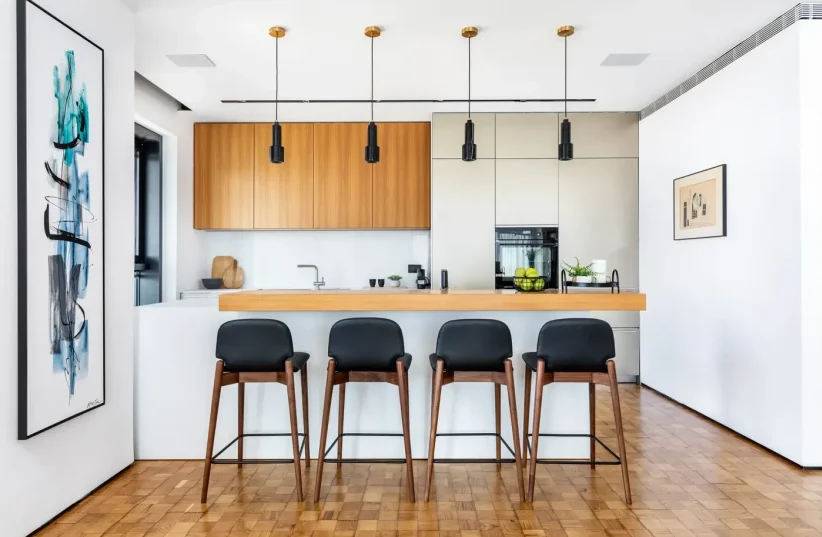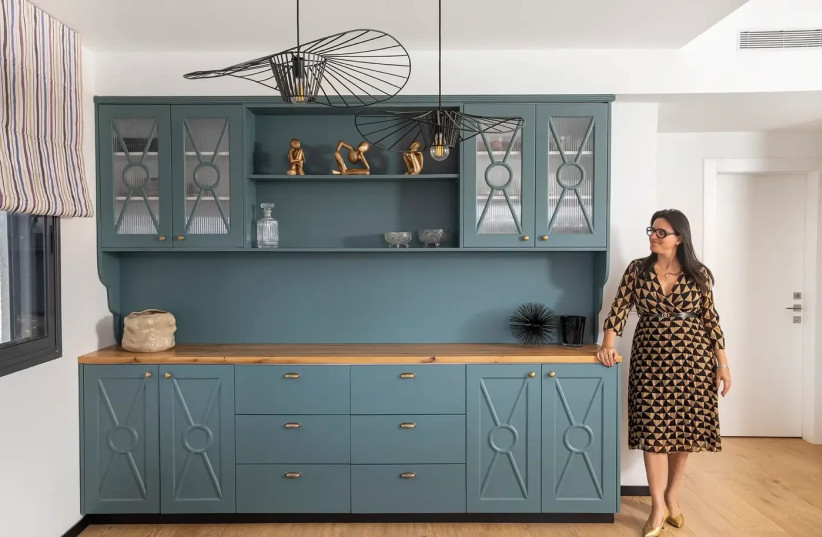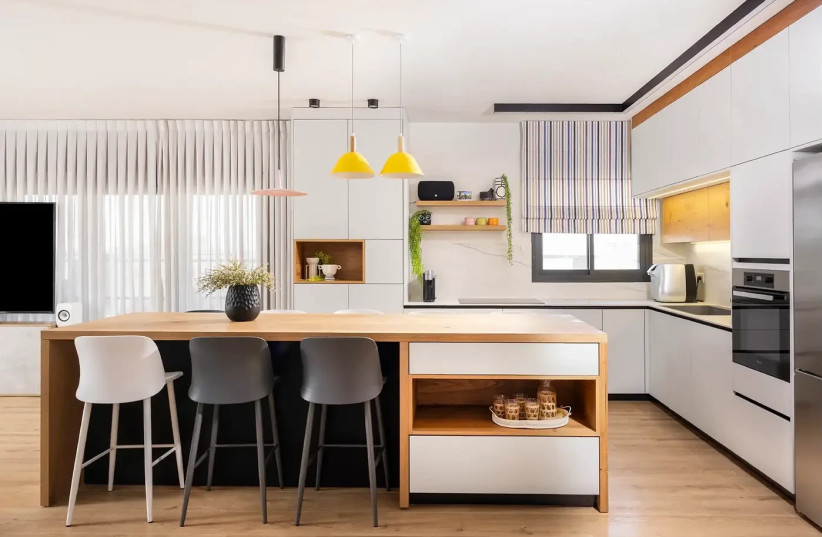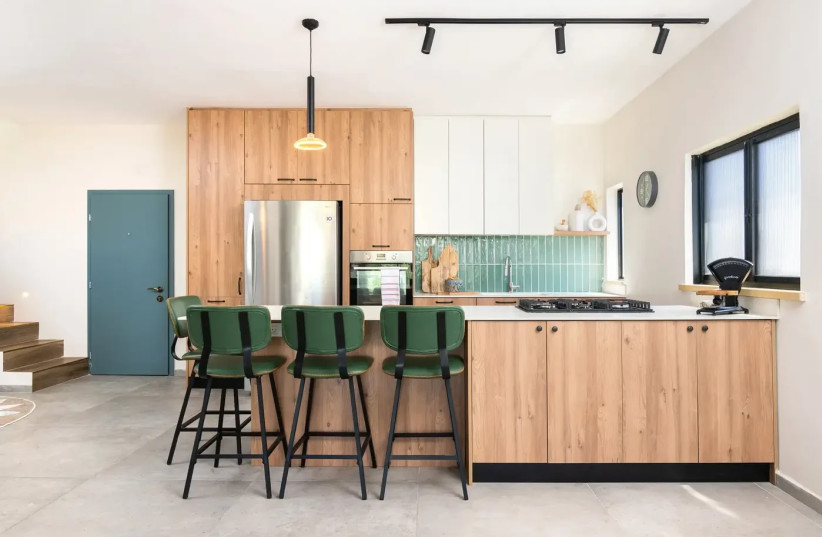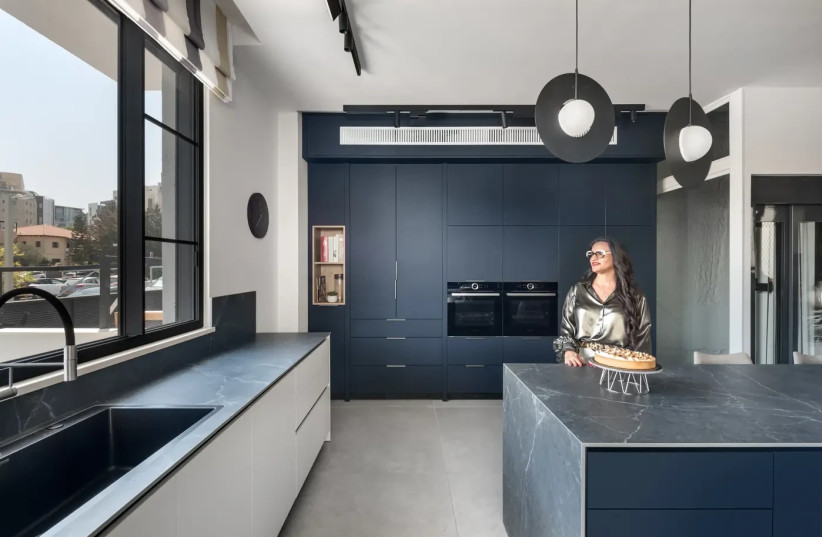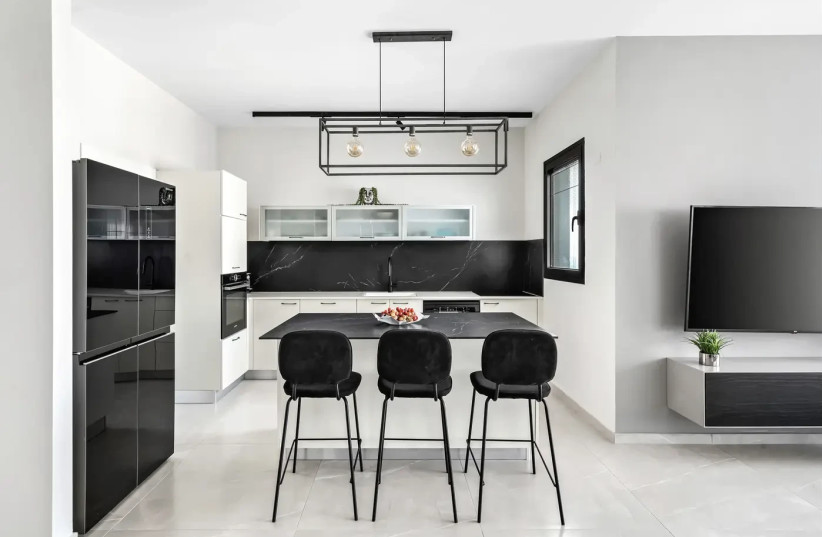The kitchen island is almost inseparable from the kitchen, becoming a central hub for family and guests alike. It serves as a place for homework, hosting, morning coffee, conversations, and meals. As the island evolves in size and functionality, incorporating sinks, stoves, and more, it remains a crucial and dominant element in the public space, especially in the kitchen, whether in small or large apartments.
This time, we’ll focus on lighting above the island to ensure various activities are done professionally and pleasantly. Beni Kohaner, a lighting consultant for "Alpina Lighting," explains: "First, it’s essential to understand the activities around the island and accordingly choose the right lighting. Since the island is a significant design element in the public space, it's crucial to highlight it with an impressive and dominant light fixture to draw attention and give the island the respect it deserves."
Kohaner adds, "You can hang a low light fixture, spotlights, or a chain of pendant lights above the island. Today, there is a wide variety of pleasant light fixtures that serve as a jewel in the space, complementing the island's design importance in the public area. It's essential for the light fixtures to create harmony and resonate with the home's design style while also incorporating a design twist. If the island serves as both a workspace and a dining area, it's important to emphasize the type of lighting: powerful and strong lighting above the workspace and pleasant and decorative lighting above the dining and seating area."
Interior designer Meital Zimmer explains the importance of lighting above the island: "Since all light fixtures are functional and technical except for those above the island and the dining area, only they dictate the character of the space's design and will give us the showpiece in the space."
In conclusion, Zimmer says, "According to the island's function (seating or work), we will match the light fixtures. In the seating area, we will combine light fixtures hanging from the ceiling with a significant visual presence without paying attention to the light intensity. In contrast, we will install functional, orderly, and uniform lighting above work surfaces. Decorative light fixtures come in various volumes; if we prefer large and prominent fixtures, we choose 2 to 3 and hang them 50-60 cm apart. If opting for smaller fixtures like rods, cups, or drops, we will ensure to purchase an odd number of lights, space them 25-30 cm apart, and hang them at different heights to create a playful effect."
